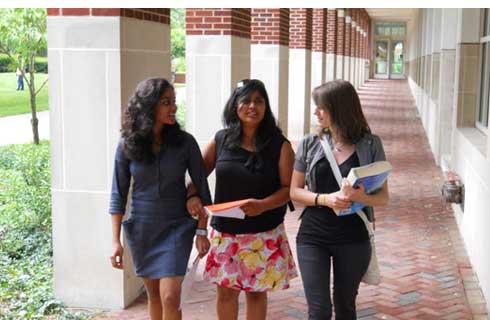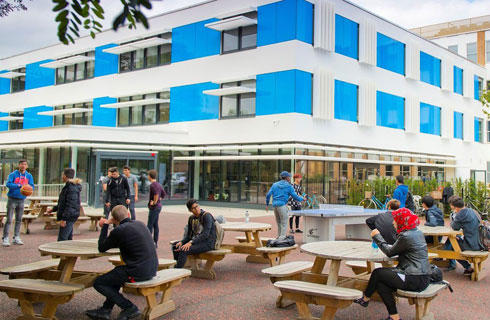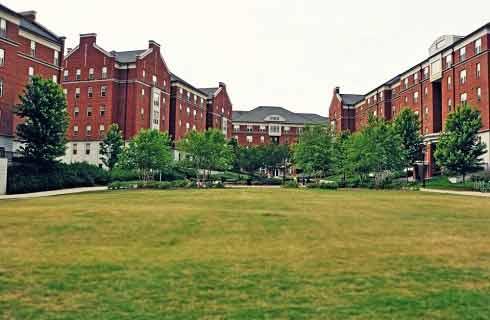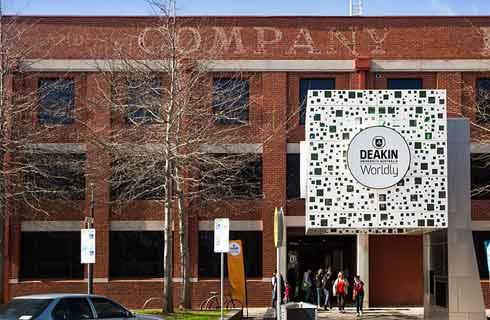城市基础设施系统科学硕士
Master of Science in Urban Infrastructure Systems

学历文凭
Masters Degree

专业院系
Department of Civil and Urban Engineering

开学时间

课程时长

课程学费

国际学生入学条件
All applicants for this MS program must additionally show evidence of general quantitative analytic ability, including a minimum of 2 years of college mathematics and a college-level course in statistics.
To be eligible for consideration to any graduate program (M.S. or Ph.D.) at NYU Tandon, you must hold a Bachelor's degree from a regionally accredited U.S. institution, or its international equivalent, which includes a minimum of four years of full-time undergraduate study. We do not accept undergraduate degrees that are equivalent to three years of study. However, Bachelor of Engineering degrees that are completed within the Bologna signatory system, and earn 180+ ECTS credits, are eligible for consideration. Please note that the minimum GPA requirement is a 3.0 out of a 4.0 scale. The NYU Tandon School of Engineering requires that graduate applicants achieve a minimum TOEFL score of 90 on the internet-based test, an overall band of 7.0 on IELTS.
IDP—雅思考试联合主办方

雅思考试总分
7.0
- 雅思总分:7
- 托福网考总分:90
- 托福笔试总分:160
- 其他语言考试:A 65 on the Pearson PTE Academics exam
CRICOS代码:
申请截止日期: 请与IDP联系 以获取详细信息。
课程简介
Urban populations are on the rise. Local governments, public service agencies, and urban utilities face increasing demand for greater reliability, safety, affordability and resiliency of aging urban infrastructure systems. These systems must be continuously adapted and upgraded (often with technology-driven solutions) to efficiently support the essential public services, urban development, and economic growth.The infrastructure systems support a variety of urban sectors, including transportation, energy & water supply, sanitation & wastewater management, and other essential services. Their sustainable development engages a wide variety of public and private sector stakeholders and greatly depends on a broad range of factors, such as public policy objectives, land use and geo-physical system characteristics, regulatory requirements, and other variables. Both Government and Industry presently face increasing needs for innovative capabilities of dynamic monitoring and 'smart system control to effectively meet the challenge of upgrading the aging urban infrastructure systems.With specialized faculty members from Government, Industry and Academia, the program is designed for professionals, with both engineering and non-engineering backgrounds, who are involved and/or interested in the fast growing inter-disciplinary field of urban systems management and career opportunities with government agencies, public and private sector utilities, and service industries across the wide array of the metropolitan sectors.
相关申请
 预科
预科 奖学金
奖学金 实习机会
实习机会 在校学习
在校学习 跨境学习
跨境学习 校园授课-线上开始
校园授课-线上开始 在线/远程学习
在线/远程学习
开学时间&学费
学费信息仅供参考,请与IDP联系以获取详细信息
| 开学时间 | 时长 | 学费 | 地点 |
|---|---|---|---|
| 暂无 | 暂无 | 暂无 | 暂无 |
学校排名

世界排名27
数据源:
泰晤士高等教育世界大学排名
关于纽约大学

纽约大学NYU是全美最大的私立大学。 不仅如此,纽约大学NYU主校区每年会迎来2000为国际学生,纽约大学阿布扎比分校的国际生来自90多个国家,加上2013年开设的纽约大学上海校区,纽约大学NYU是名副其实的全球第一所 Global Network University。相比于522门专业,纽约大学NYU的学生普遍认为,在纽约这个全球最发达的城市所学到的街头知识同样重要。有人说,纽约大学,就是纽约本身。纽约大学提供惊人的522个专业供学生选择,其中商科类与艺术类专业尤其著名。本科阶段,你有机会从Dean’s Undergraduate Research Fund中获得250到2000美元不等的资金支持。教授会用他们的亲身经历来补充课堂上学习的内容,他们在上班时间和电子邮件里都一样平易近人。
本校相关课程

物理学哲学博士
学历文凭
Ph.D.
开学日期
课程费用总额


法学博士/哲学哲学博士
学历文凭
Double Major Degree
开学日期
课程费用总额


绩效研究哲学博士
学历文凭
Ph.D.
开学日期
课程费用总额


神经科学哲学博士
学历文凭
Ph.D.
开学日期
课程费用总额


中东和伊斯兰研究哲学博士
学历文凭
Ph.D.
开学日期
课程费用总额


大气海洋科学哲学博士
学历文凭
Ph.D.
开学日期
课程费用总额

其他相关课程

海洋管理硕士
 达尔豪斯大学
达尔豪斯大学学历文凭
Masters Degree
开学日期
课程费用总额


农业设备技术员证书
 萨省理工学院
萨省理工学院学历文凭
Bachelor Degree
开学日期
课程费用总额


旅游和款待业工商管理学士
 爱德华王子岛大学
爱德华王子岛大学学历文凭
Bachelor Degree
开学日期
课程费用总额


安大略大学供应链管理研究生证书-全球物流
 圣力嘉学院
圣力嘉学院学历文凭
Graduate Certificate
开学日期
课程费用总额


安大略大学国际运输与海关大专文凭
 圣力嘉学院
圣力嘉学院学历文凭
Bachelor Degree
开学日期
课程费用总额


安大略大学旅游证书-旅行运营
 圣力嘉学院
圣力嘉学院学历文凭
Bachelor Degree
开学日期
课程费用总额










 美国
美国